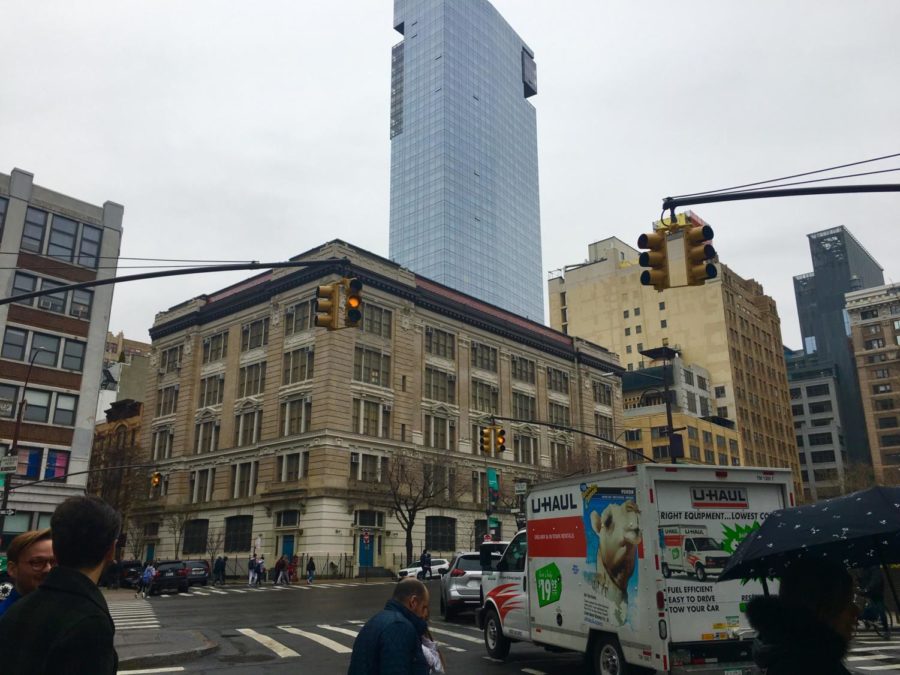Clubs at the iSchool
April 5, 2019
It’s last period and you have been looking forward to this all day. You survived seven hours of school and are now walking into a classroom that is surrounded by a community of your peers.
Clubs are a staple of the iSchool community, but what makes are our clubs so special? These programs can act as a safe space for the students in the school, and they can also act as a way for students to meet other people in the community who are interested in the same topics as them, as well as giving students the opportunity to learn about topics that might not be available otherwise.
But beyond that school clubs, they can also offer students important life skills that they can utilize later in life. Clubs can provide students the tools that they need to succeed later in life that they might not have learned in a traditional school setting.
Correspondent to the Herald Terence Mapouka stresses the importance of students taking part in after school clubs, “There are so many ways that clubs can help build a learner into a well-equipped citizen contributing significantly to the production of a nation.”
The iSchool offers a variety of social and academic clubs including:
Black Student Union,
Gender Sexuality Alliance (GSA)
Model UN,
College Peer Leaders,
Social Activism,
Jazz Band,
Culture Club,
Chemistry Club,
iNews Club,
Theater Club,
Creative Writing Club,
iCare Community Service Club.
Head of the GSA (gender sexuality alliance) Club Alison Nolan remarks on her experience with the club at our school: “I really liked that the people who were the presidents during my junior year really focused on wanting to expand their knowledge on the LGBTQ community and everyone else’s in the iSchool’s knowledge.”
Nolan explains the benefits that join a club can have for a student: “It can really teach them responsibility and time management ….but it can also teach leadership skills and social skills.”
She then goes on to explain the importance of a club such as this one, “there are going to be kids who feel lost and alone and like they can’t reach out to people at home or at school so it’s really important for everyone to have a safe space.”
Mrs. Strassler, head of the Model UN Club and U.S history teacher, stated why she started the club and why she thought it was important for the iSchool, “ when I came to the iSchool it was something I wanted people to at least know about and then join if they were interested, I think that once people that were interested started doing model United nations like they definitely saw the benefits of it and they have fun doing it, so it’s both like fun and good for people.”
Strassler remarked on the importance of high schoolers participation in clubs: “ in high school everyone should try to figure out besides like doing well in their academic classes what things they are interested in doing in their free time and some of those things should probably be connected or lead them to things they might want to consider as a career.”
Strassler also talked about the skills that students can learn from joining the Model UN club:
“They learn to do research and writing they learn about a variety of issues that are going on in the world and they read about those issues when they are at a conference they learn public speaking negotiating.” She ended with, “It exposes them to a lot of things about the world that they might be interested in learning about.”
Margot Fitts, a freshman at the iSchool and a member of the Model UN and Social Activism Club, remarks on why she thinks it is necessary for students to participate in school clubs: “ I think it’s important because you can meet people with similar interests …I think it helps you become a better person and also it can help the community around you.”
Fitts also talked about the problems with the clubs at the iSchool, “I definitely think that clubs are important, but I think there could be a lot more and there could be a lot more people like willing to join.”
Fitts discussed a lack of school spirit surrounding our schools clubs “there’s the club fair but besides that there not a lot of interest in clubs…I feel like yeah they’re important but they need to be shown a bit more in schools.”
The iSchool has a large variety of academic and social clubs that take place after school and during lunch that could be potentially beneficial to iSchoolers of any age. These clubs could help students develop skills that they could use later in life, including skills that they might not have learned in regular classes. I would strongly encourage all students at the iSchool to be a member of at least one club during their time here you never know what it could lead to.


